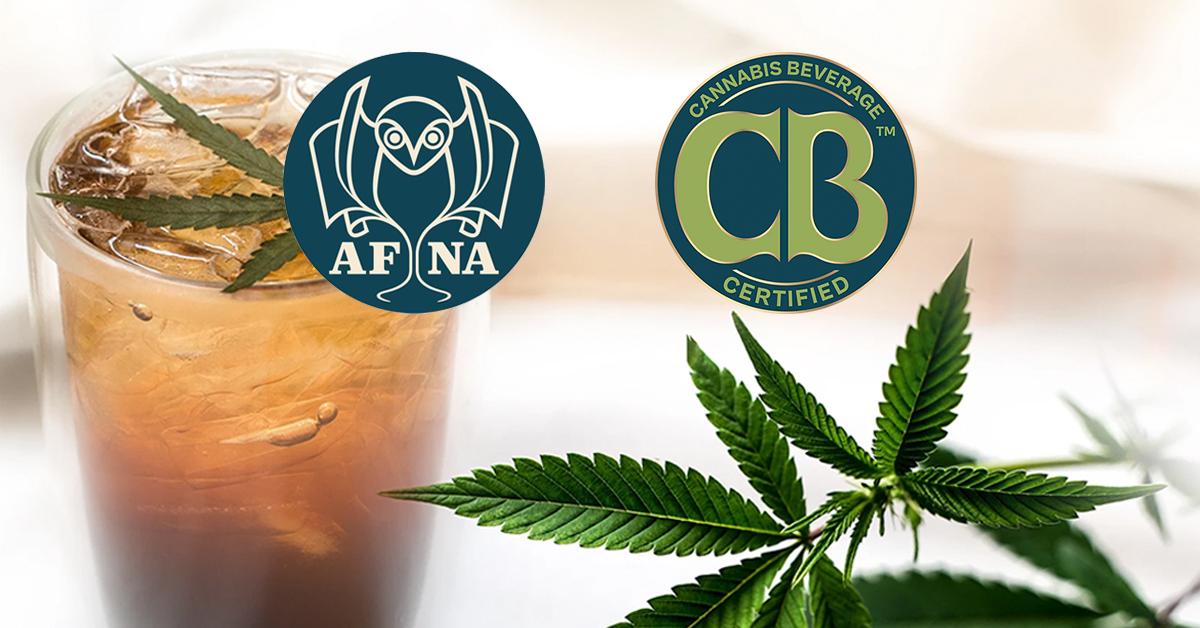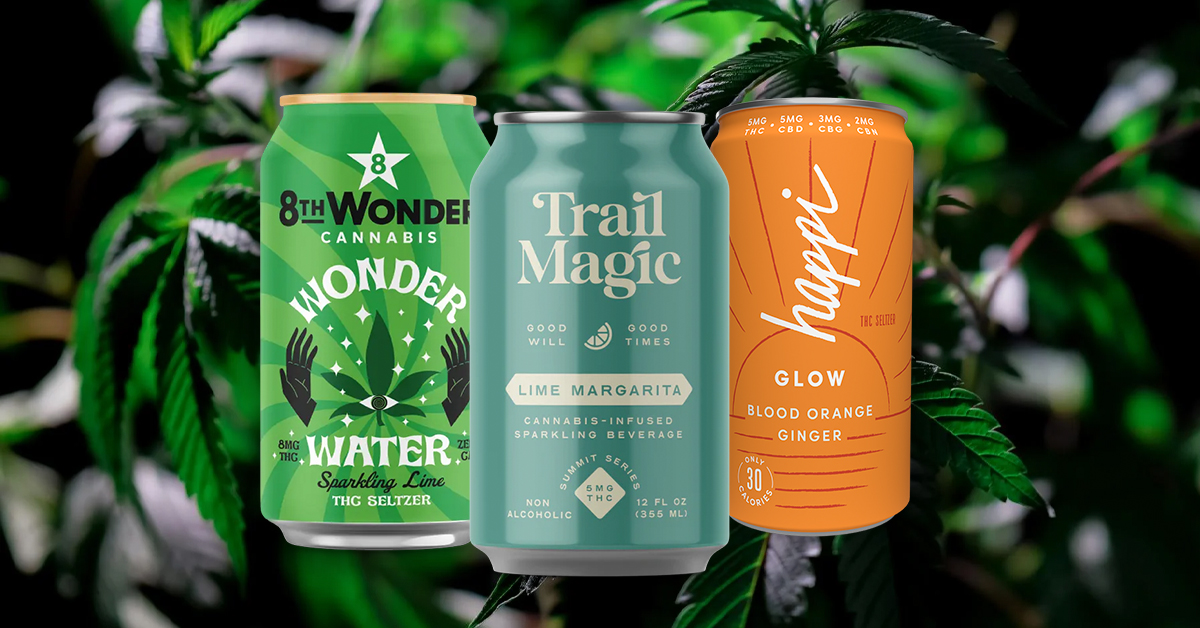Ask any THC or non-alcoholic alternative beverage founder about their biggest obstacle to breaking into widespread distribution and the answer is almost always the same: education.
AFicioNAdo is tackling this challenge to the non-alcoholic (NA) and THC beverage industries head-on with a new education and certification program that targets on-premise purveyors, distributors and retailers with the goal of uplifting these new categories into mainstream availability.
Founded by craft beer industry veteran Meagen Anderson, AFicioNAdo was born out of her own alcohol-free journey and the realization that the adult non-alcoholic category is “underdeveloped in the U.S.”
“The only way we’re going to be able to achieve growth for these brands is by providing that training,” she said. “Think about what the Cicerone Certification Program did for craft beer. How did that change the conversation?”
Using the Cicerone model, Anderson hopes to create an avenue to tap into the increased demand for NA and THC beverages through educating stakeholders and potential purveyors about formulation, merchandising, target consumer base and building brand awareness.
Presently, AFicioNAdo operates its AFNA Beer Certified Program and is readying to launch its Cannabis Beverage Certified (CBC) platform in the next six to eight weeks, with NA spirits and NA wine certifications set to follow.
Tapping into the growing demand for non-alcoholic beverages is a major opportunity for both beverage distributors and retailers. Sales for bev-alc products are not just dipping in sober months like Dry January or Sober October, but year-round as more consumers prioritize wellness and alcohol-reduction.
Off-premise sales of non-alcoholic beverages were nearly $510 million in 2023, up 31% compared to the previous year, according to Nielsen IQ data. Most of these sales occurred in food (62%) and liquor (18%) retail locations.
About 31% of no- or low-alcohol consumers have tried an “alcohol adjacent” beverage like THC in the last year, according to IWSR consumer data, which is outpacing every other no-alcohol sub-category, including beer.
Education Uplifts Growth Of THC Beverage Category
Having already launched its AFNA beer certification program in 2023, AFicioNAdo is using a similar syllabus structure for its CBC program. The AFNA Beer curriculum features a comprehensive overview of the NA beer category from history, styles and production to food safety, labeling and marketing strategies.
The CBC program will be mobile-accessible through Seed Talent, a cannabis industry focused management platform, and take approximately two hours to complete.
It also will serve an educational role to guide bartenders, distributors and retailers from a “position of safety,” said Leigh Gall, who is part of the thought leadership team on the CBC. Along with her role as VP of sales for THC beverage brand Happi, Gall is also a partner of Hop Forward Consulting with Anderson.
“It’s taking a lot of time for these distributors to sit and educate retailers on why they should be bringing the [THC beverage] category in,” Gall said. “I see this as a tool that just benefits the industry as a whole and provides more safety for the end consumer.”
The rise of the THC drink category is still new to traditional beverage distributors. Despite the gains the category has had in places like Minnesota and with bev-alc retailers like Total Wine and More or Spec’s, many larger retailers are still hesitant to begin offering it.
“There are large distributors and even big box retailers that aren’t in cannabis or THC-infused beverages that don’t want to touch this stuff until there is education around the products,” said Spencer Ploessl, a marketing consultant working with AFicioNAdo. “Conversations are being had where these distributors are saying we need this educational piece before we even make any headway carrying it.”
Sales for THC drinks were just under $450 million last year with hemp-derived THC dollar sales growing 143% in 2023, according to data from the Brightfield Group.
The opportunity in the space is growing with many major beer distributors already dipping a toe into the category including a THC beverage production line being built out by Sierra Nevada Brewing Company.
Many NA category consumers are not necessarily taking market share from bev-alc categories like beer or wine but from traditional alcohol-free drinks like soft drinks and water, according to a recent IWSR report.
“Increasingly, alcohol companies see no-alcohol especially as an opportunity for growth,” said IWSR head of no- and low-alcohol insights in the report. “Moderation is an established trend, and no-alcohol products which keep customers within a category…offer an option to alcohol businesses to hold on to revenue and continue to build brand equity.”
Credibility Is Key
Although bringing more education and institutional insight to potential purveyors of cannabis beverages is the goal, the information needs to come from reputable sources to maintain credibility, Anderson said.
AFicioNAdo counts industry groups like the Cannabis Beverage Association (CBA) and the Hemp Beverage Alliance (HBA) as supporters of the program but is careful to not align completely with lobbyist organizations to maintain its identity as a third-party operator.
Anderson sees the value of the CBC as transcending retail and becoming a useful tool for policymakers shaping the industry’s future.
“Everybody is talking about how to get on the same page, and that’s very encouraging to me,” she said. “We can have a significant impact and we hope can give the regulatory agencies confidence in the category.”
Confidence can be derived from technical expertise brought by stakeholders like Breanna Neff, a food scientist and co-founder of powdered Delta-9 THC brand Brelixi. Neff — who has worked on cannabis, food and beverage advisory boards at colleges in New York State and New Jersey — was tapped by the CBC to contribute her expertise on the complex regulatory differences between cannabis-derived and hemp-derived THC drinks to the educational material.
Using her background, Neff was also able to add language and a scientifically backed perspective on how nanoemulsion formulation has changed how consumers will react to THC beverages in comparison to other consumable cannabis products.
Credibility works in both ways, Neff said. “It definitely gives us more brand authority and working as a technical director as part of the certification program itself brings an extra emphasis to that.”
Legitimacy for AFicioNAdo is also growing as more brands and industry leaders take part.
Craft beer company BrewDog, whose portfolio includes a number of NA varieties, was one of the first companies to adopt the AFNA Beer Certification program and has required its whole sales team to take the educational course.
BrewDog has also been instrumental in bringing more awareness of the program to its retail partners as a way to better merchandise and sell the product in stores. The beer brand got Total Wine and More buyers to get certified as well as had conversations with representatives at Wegmans and “a large number of wholesalers across the country,” said BrewDog VP of U.S. sales Eric Teodoro Franco.
Citing the brand’s NA variety pack as one of the top sellers in the category, Franco said: “Do we need the education to sell it? Probably not.”
“But there’s a little bit of a wave that has happened over the last 24 months in NAs specifically,” he added. “Retailers are still needing to be educated around the value proposition and we felt it was really important for our organization to be taking a leadership position.”

